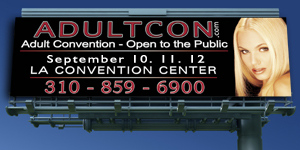Social Media Best Practices (and some other good ones, too)
 The ASACP just released their Social Media Best Practices to help guide those of us in adult entertainment to make sure that children are not accessing unsuitable material. It is not just children we are protecting. If someone accesses inappropriate material at work, they could get fired.
The ASACP just released their Social Media Best Practices to help guide those of us in adult entertainment to make sure that children are not accessing unsuitable material. It is not just children we are protecting. If someone accesses inappropriate material at work, they could get fired.
A friend of mine once bought a DVD boxed set of B movies from the 60’s and 70’s. During holiday celebrations, he popped in the first disc to sit down and watch one with his entire family. His parents, brother and sister-in-law, nieces, nephews and daughter were all there. When the movie came on, he realized that this was an old porn. Whoops.
Social media is trying to help insure that you know what you are about to see, so you can make sure that you are in the right place at the right time, and not “accidentally” stumbling across anything inappropriate.
Listen to Joan Irvine talk about Social Media Best Practices in her blog radio interview on Sin 2.0.
Social Media Best Practices
- Label all sexually explicit ‘social media content postings’, including but not limited to: text, video, audio, images or widgets enabling any software functionality.
- All social media content postings should indicate “Age-Restricted” or “Sexually Explicit” based on the content.
- When you direct people to age-restricted content or commerce on or from online social networks & mobile devices, ensure that all of your social media and mobile pages from blogs, ads and e-commerce tools to videos, fan pages, apps and widgets are labeled with the Restricted to Adults – RTA website label (http://rtalabel.org).
Additional Good Practices
- label your tweets or posts with #nsfw (not safe for work)
- Make sure that you have a landing page that is not explicit, that lets people know they are about to enter an explicit website.
- Set an age limit of 18+ on your Facebook fan page
- If you have a Facebook profile, create a group for your explicit postings and restrict all explicit talk and postings to the group. Make sure to make your group private.
Let us know if you have any other good practices to add to the list!


 Facebook owning the rights to our photos is something most of us never think about when we use it. But if your photos are part of your business or professional image, then this might be a big concern for you.
Facebook owning the rights to our photos is something most of us never think about when we use it. But if your photos are part of your business or professional image, then this might be a big concern for you.




 It is safe to say that adult entertainment is under represented in social media. However, that is better than not represented. At
It is safe to say that adult entertainment is under represented in social media. However, that is better than not represented. At 